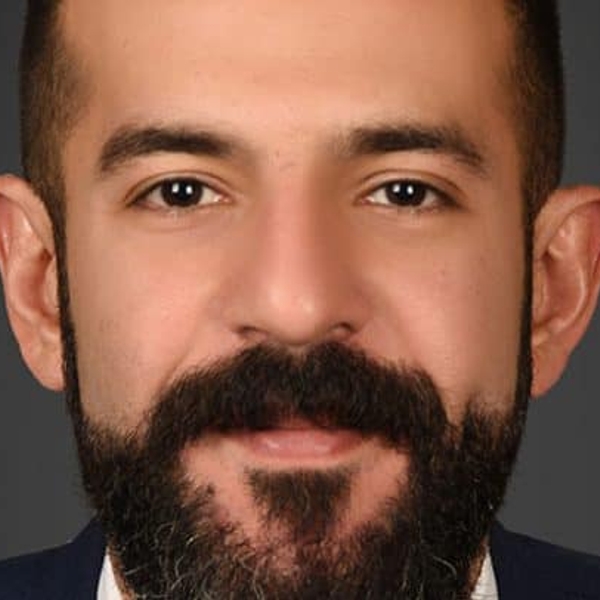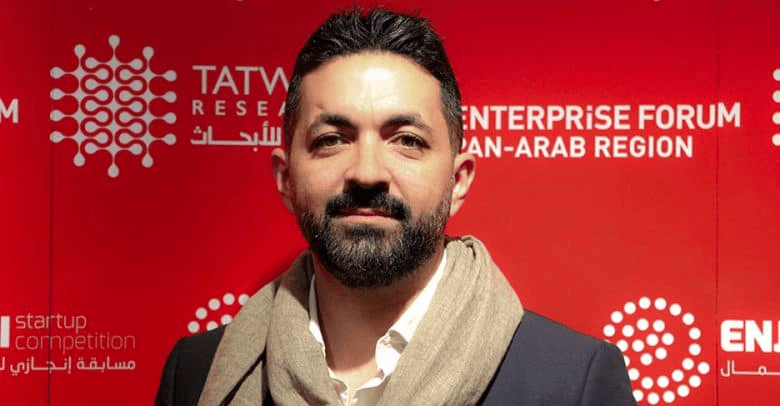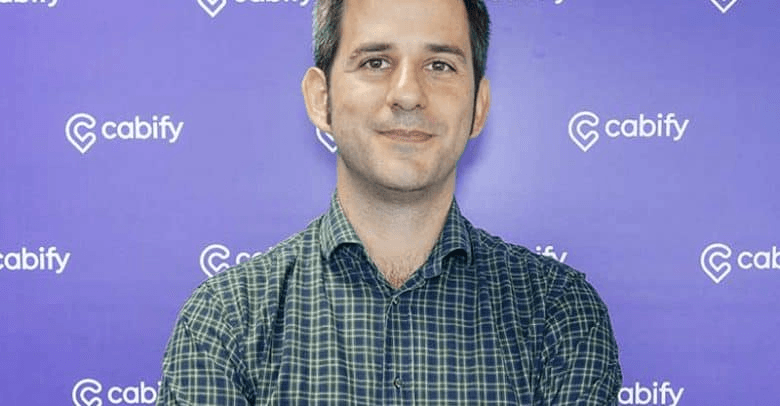- Home
- We Are Alumni
- Epic Awards
- Dr. Ad Abdullah Al Ali
Dr. Ad Abdullah Al Ali

"No one will argue that every child deserves the right to a fulfilling childhood, and to be provided the tools to reach their full potential. That is a belief we all share, but it is not the reality for children with autism. And it is the belief that the current situation is completely unjust, which drives everything my team and I do. That belief gives us our mission: To give every child the chance they deserve."
“I want to be a doctor so I can have a white coat and a nice pen.” That is what my 5-year-old self said in a video we have at home. And although I lost my fascination with pens, I didn’t lose my fascination with medicine.
Growing up in Kuwait, I always knew I wanted to be a doctor. As soon as I finished high school, I was offered a scholarship to study medicine in Ireland. I spent an amazing 8 years there, after which I returned home to Kuwait, and specialized in family medicine, completing my board certification in 2015. I loved being a family physician, and I was lucky to see the impact I was having on my community byhelping people manage their health needs. In 2011, a chance encounter changed my life. I ran into an old friend from Ireland in Kuwait, and he asked me if I was interested in helping his wife, who was an autism therapist, set up an autism center. We partnered together to start the Applied Behavior Center of Kuwait (ABC). Today, ABC is home to 70 amazing children and over 80 therapists, working every day to give these children the chance to reach their full potential.
Over the course of 8 years, I gained an education in business through experience, but I knew that I had to add tools that would help me take ABC to the next level, which I had identified as a regional expansion. I searched and searched and landed on the IE website. The thought of learning in a hub of innovation and entrepreneurship, in Spain, a culture I had already been exposed to and loved, was an irresistible one. I wanted to find a way to deliver the same care we have at ABC to my region, and initially, I thought all I had to do was learn how to be better at finance and expand a business. How wrong I was. IE transformed my perception through my section mates, my MBA classmates as a whole, and through my professors, startup and most importantly, Venture Lab.
I left with an amazing team, and a Venture Lab winning project called Manara, a digital solution that teaches parents how to manage their child’s autism, while bringing down the cost and improving accessibility through technology and innovation. Manara is on course to hopefully one day impact millions of lives, and there is no doubt in my mind that it wouldn’t have happened without IE. This leads me to my core belief and the driving force behind everything I do, which is that every child deserves a chance. Their access to the best care should not be determined by their last name, their nationality, or the economic standing of their families. I will continue to do everything I can to make sure we are heading in that direction all the time.
How did IE help you get to where you are today?
My autism center in Kuwait, ABC, and others worldwide were transforming the lives of children with autism by providing a very successful psychological therapy known as ABA. This therapy was individually tailored to each child’s needs and would help them overcome the main areas of deficit in autism, communication and social skills, and behavior. In fact, it has been so successful that it is now mandated by all of the health authorities relevant to autism. Many children with autism that begin ABA at an early age are able to gain enough skills to become independent, gaining the ability to be educated in a regular school, and form relationships with their family and peers. This essentially gives them the ability to have a better quality of life, where they can reach their full potential.
However, ABA is provided on a 1 to 1 basis, and for around 30 hours a week, over an average of 4 years, by a highly trained and educated workforce. Needless to say, it is expensive. On average, one year of ABA costs around $50,000 per year. This would be great if you had access to it, but your access was limited to your region having a center, and you having the financial ability to afford it, or your country having laws which give you access to insurance or governmental funding.
If you weren’t one of the lucky ones, your child would be left behind. We all knew that this was not right, and this model of care had to change. With this thought burning in my mind, I came to IE. And throughout the MBA, we had a strong focus on entrepreneurship, where we were taught how to define the problem we believe needs solving, studying it, and applying the tools to come to a solution that utilizes technology and innovation. Through the mentorship of my peers and my professors, all from variable backgrounds and with great insights, my team and I were able to identify what needed to be done. We could bring down the cost of care and improve the access if we provided parents with training and a specialist’s support in an online platform. That’s how we came up with Manara, which won the Startup Lab and IE Venture Day, both of which have helped launch Manara into a reality, a reality that will have an impact on millions of children and their families.
What drove you to work for a cause that believes in the greater good?
Studying medicine abroad in Ireland, and reading about the developments occurring elsewhere, I was shocked whilst doing the research for the autism center, that not only do we not have a basic autism ecosystem set up in Kuwait, but that this was also the case in the Middle East and North Africa as a whole. That meant around 330 million Arabic speakers were not getting the attention they deserved, not only in the sense of autism at a micro level but also health education and empowerment at a macro level. Simply put, if you didn’t speak English or French, and if you didn’t have money, you had no ability to enrich your knowledge on your health, and therefore have a better life. That empowerment is a right I grew up with because I was lucky to learn English. However, what was the fault of those who didn’t have the means? It just seemed so utterly unfair. And that unfairness and the absolute belief that it is not right is why I think everyone should work towards making the world a more just place.
It just so happens to be that for me, my way of hopefully contributing to this world can be done through combining my medical knowledge with my business knowledge, and never foregoing the basic belief that when possible, make your business have an impact on where it is operating. Make that impact real, measurable, attainable and always promise you will not be satisfied, and that you will always try to expand that impact.
In what way is your work impacting the world?
Thankfully, ABC has had the opportunity to help over 250 families of children with autism in Kuwait since 2011. Today, we have had over 40% of our children gain the ability to be educated in mainstream schooling, without the need of aid or special services. Parents send us their kid’s work and their reports from school, and it makes our hearts smile to see these kids not only have the ability to reach their full academic potential, but also their full personality potential, and seeing them live life as kids, with a childhood full of love and acceptance.
Typically, people will always try to judge the success of managing autism by asking ‘How many children did you teach how to speak?” or “How many kids are now in school because of your program?”. That is the wrong way to look at it. Autism has varying severities, and in its most severe form, the child and adult can be undergoing severe behaviors, such as self-injury, injury to others, and not knowing that running on the street or sharp and burning objects are dangerous. School is the least of those parents’ worries.
My team’s proudest moment came with a child who is very dear to our hearts, Osama. Osama was late in getting ABA treatment, he started at the age of 8. He came to us at the age of 12, and he was already a big-bodied boy, so much so in fact that we always had to have 2 therapists with him instead of 1, for his and their safety. Osama had a particularly strong habit of bolting – that is running whenever there was an open space – and this would happen in the streets around his house. As you can imagine, this is a very scary thing to happen, a car could havee killed him at any time. The team worked really hard on this behavior and others that were severely affecting his daily life and that of his family. One day, sitting in the office with my team one evening after work, my phone rang. I saw Osama’s mother’s number on my phone, and it wasn’t a typical hour for her to call. With my heart pounding, and the team silent, I answered the phone. “Hello?”. All you could hear was her crying and trying to say something. I feared the worst. Had something happened to that boy we all love? But then, I could finally hear what she said “He said ‘dangerous’! Doctor! He said ‘dangerous’! He is holding my hand at the door!”. She was so happy that he finally learned the danger of bolting, and not only that, was now not doing it. “I can’t thank your team enough.” It was us who couldn’t thank her enough. There are no words to describe the feeling one gets from hearing that from a parent.

NOMINATIONS ARE CLOSED
We will be announcing the nominees shortly. Stay tuned!

